E cological Thought in German Literature and Culture
Ecocritical Theory and Practice
Series Editor
Douglas A. Vakoch, California Institute of Integral Studies, USA
Advisory Board
Bruce Allen, Seisen University, Japan; Hannes Bergthaller, National Chung-Hsing University, Taiwan; Zlia Bora, Federal University of Paraba, Brazil; Izabel Brando, Federal University of Alagoas, Brazil; Byron Caminero-Santangelo, University of Kansas, USA; Simo Farias Almeida, Federal University of Roraima, Brazil; George Handley, Brigham Young University, USA; Isabel Hoving, Leiden University, The Netherlands; Idom Thomas Inyabri, University of Calabar, Nigeria; Serenella Iovino, University of Turin, Italy; Daniela Kato, Kyoto Institute of Technology, Japan; Petr Kopeck, University of Ostrava, Czech Republic; Serpil Oppermann, Hacettepe University, Turkey; Christian Schmitt-Kilb, University of Rostock, Germany; Heike Schwarz, University of Augsburg, Germany; Murali Sivaramakrishnan, Pondicherry University, India; Scott Slovic, University of Idaho, USA; J. Etienne Terblanche, North-West University, South Africa; Julia Tofantuk, Tallinn University, Estonia; Cheng Xiangzhan, Shandong University, China; Hubert Zapf, University of Augsburg, Germany
Ecocritical Theory and Practice highlights innovative scholarship at the interface of literary/cultural studies and the environment, seeking to foster an ongoing dialogue between academics and environmental activists.
Recent Titles
Ecological Thought in German Literature and Culture edited by G abriele Drbeck , Urte Stobbe , Hubert Zapf , and Evi Zemanek
The Horse in Literature and Film : Uncovering a Transcultural Paradigm by Francisco LaRubia - Prado
Water in Medieval Literature : An Ecocritical Reading by Albrecht Classen
Sustainability and the City : Urban Poetics and Politics edited by L auren Curtright and Doris Bremm
Ecocultural Ethics : Critical Essays edited by R ayson K. Alex , S. Susan Deborah , Reena Cheruvalath , and Gyan Prakash
Writing the Earth , Darkly : Globalization , Ecocriticism , and Desire by Isabel Hoving
Ecological Entanglements in the Anthropocene edited by N icholas Holm and Sy Taffel
Ecocriticism , Ecology , and the Cultures of Antiquity edited by C hristopher Schliephake
E cological Thought in German Literature and Culture
Edited by
Gabriele Drbeck, Urte Stobbe,
Hubert Zapf, and Evi Zemanek
LEXINGTON BOOKS
Lanham Boulder New York London
Published by Lexington Books
An imprint of The Rowman & Littlefield Publishing Group, Inc.
4501 Forbes Boulevard, Suite 200, Lanham, Maryland 20706
www.rowman.com
Unit A, Whitacre Mews, 26-34 Stannary Street, London SE11 4AB
Copyright 2017 by Lexington Books
All rights reserved . No part of this book may be reproduced in any form or by any electronic or mechanical means, including information storage and retrieval systems, without written permission from the publisher, except by a reviewer who may quote passages in a review.
British Library Cataloguing-in-Publication Information Available
Library of Congress Cataloging-in-Publication Data Available
ISBN 978-1-4985-1492-7 (cloth : alk. paper)
ISBN 978-1-4985-1493-4 (electronic)
 The paper used in this publication meets the minimum requirements of American National Standard for Information SciencesPermanence of Paper for Printed Library Materials, ANSI/NISO Z39.48-1992.
The paper used in this publication meets the minimum requirements of American National Standard for Information SciencesPermanence of Paper for Printed Library Materials, ANSI/NISO Z39.48-1992.
Printed in the United States of America
Contents
Gabriele Drbeck, Urte Stobbe, Hubert Zapf, and Evi Zemanek
Anke Kramer
Heather I. Sullivan
Kate Rigby
Berbeli Wanning
Caroline Schaumann
Silvio Vietta
Timo Mller
Angelika Krebs
Hannes Bergthaller
Benjamin Bhler
Hubert Zapf
Franois Walter
Martin Bemmann
Werner Konold
Richard Hlzl
Jens Soentgen
Jakob C. Heller
Axel Goodbody
Evi Zemanek
Urte Stobbe
Wolfgang Lckel
Gabriele Drbeck
Nils Bttner
Aaron S. Allen
Matthias Hurst
Udo Weilacher
Gabriele Drbeck, Urte Stobbe, Hubert Zapf, and Evi Zemanek
Ecocritical literary and cultural studies in the twentieth century are characterized by two apparently opposite but in fact interrelated tendencies. One tendency is the rapidly increasing globalization of the field, which started out as a regional phenomenon in the Anglo-American world in the later part of the twentieth century and has meanwhile become one of the most productive paradigms in literature and culture departments across the planet. The other tendency is the growing awareness and scholarly articulation of the enormous diversity and the distinct contributions of various cultures to ecological knowledge. The first tendency reflects a powerful dynamics of ecological thought to cross-regional, national, and cultural boundaries and to foreground the transnational and transcultural nature of all ecological processes within the framework of the planetary ecosystem. The second tendency reflects an equally forceful counter-dynamics within the new paradigm to foreground the historical distinctness and cultural uniqueness of all intellectual and artistic expressions of ecological thought. While the first tendency emphasizes the potency of transnationally shared knowledge and artistic communication about ecological issues across historical-cultural boundaries, the second accentuates the irreducible difference of all forms of ecological knowledge due to their embeddedness in specific experiential, linguistic, and cultural contexts.
The relationship between these tendencies can be interpreted in different ways. One, it can be seen as a mutually exclusionary opposition between incompatible perspectives, one insisting on the necessity to bring different ecological knowledge cultures into conversation with each other with a view to the global impact and significance of ecological processes, the other explicitly resisting this drive toward homogenizing globalization by emphasizing the radical heterogeneity and ultimate untranslatability of different ecological cultures. Two, it can be seen as a subordinating relationship, in which the diversity of particular cultures is taken into account only insofar as they contribute to a globally shared ecological discourse; or in which, vice versa, transnational and transcultural implications are subordinated to the singularity of particular ecological knowledge cultures. Three, it can be seen as a relationship of equally valid and mutually complementary tendencies, which only in their fully acknowledged, even though paradoxical, coagency can bring out the best of current ecocultural scholarship. In this view, both the recognition of inevitable connectivity and of irreducible diversity is mandatory in assessing the relation between different ecological knowledge cultures. On an epistemic level, this corresponds to the fundamental structure of all ecological thought, which is defined in the polarity between potentially infinite connectivity and potentially infinite diversity .
The present book Ecological Thought in German Literature and Culture , in accordance with the Ecocritical Theory and Practice series of which it is part, is based on the latter interpretation. It is the aim of this book to offer a systematic survey and analysis of the characteristic contributions of German literature and culture to the evolution of ecological thought and writing both on a national and a transnational scale. In this sense, the book attempts both to do justice to the specific features of ecological thought in German-speaking cultures and to assess its most important and influential contributions to a globalizing ecocritical discourse. These contributions, while offering unique perspectives on the relationship between human culture and the nonhuman world, have never been restricted to national boundaries. A long history and cross-cultural evolution of proto-ecological thought has preceded and enabled the emergence of the characteristic forms and directions of German ecological thought, which in turn has had considerable impact on developments in other literary and intellectual cultures. The textual, scientific, and artistic manifestations of ecologically inspired thought in German-speaking cultures have always been intertextually and transnationally connected, and have, in fact, already become part of the larger field of ecocritical theory and practice in many ways. Goethe and the romantics, the German philosophy of nature culminating in Schelling, the explorations and writings of Alexander von Humboldt, the legacy of the Frankfurt Critical Theory, the phenomenological tradition from Heidegger to Gernot Bhmes philosophical aesthetics of nature, or Ulrich Becks concept of the world risk society, are but a few hallmark examples of this dialogic exchange and mutually enriching reception process, which has been significantly intensified recently (cf. Goodbody/Rigby 2011; Zapf 2016). What is more, German ecological thought is in itself by no means a monolithic phenomenon but consists of a plurality of different developments, ideas, directions, and approaches. It therefore goes without saying that it is only some of the most important of these that we are able to represent in the chapters of this book.
Next page
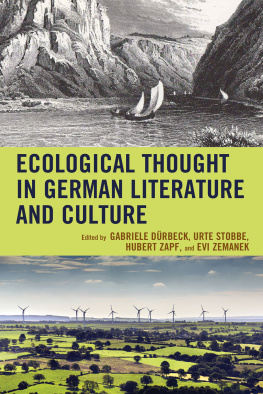


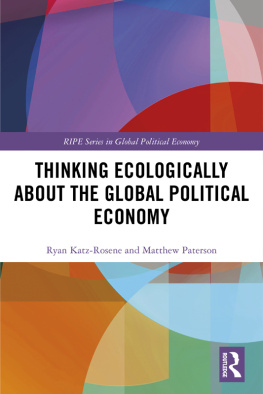
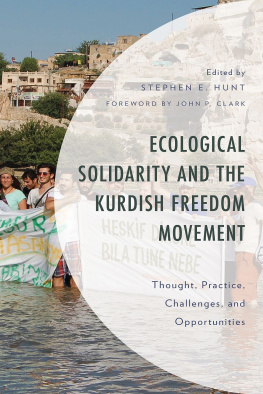
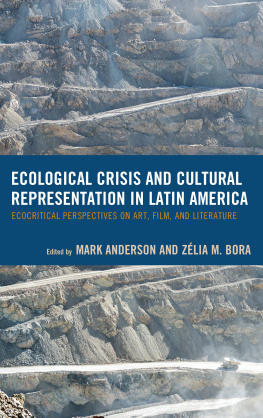
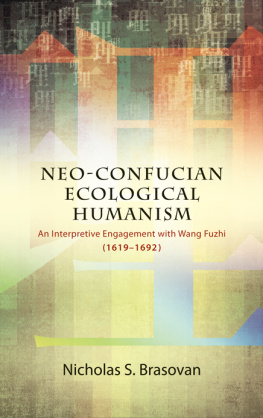
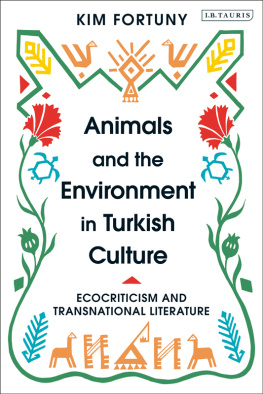
 The paper used in this publication meets the minimum requirements of American National Standard for Information SciencesPermanence of Paper for Printed Library Materials, ANSI/NISO Z39.48-1992.
The paper used in this publication meets the minimum requirements of American National Standard for Information SciencesPermanence of Paper for Printed Library Materials, ANSI/NISO Z39.48-1992.